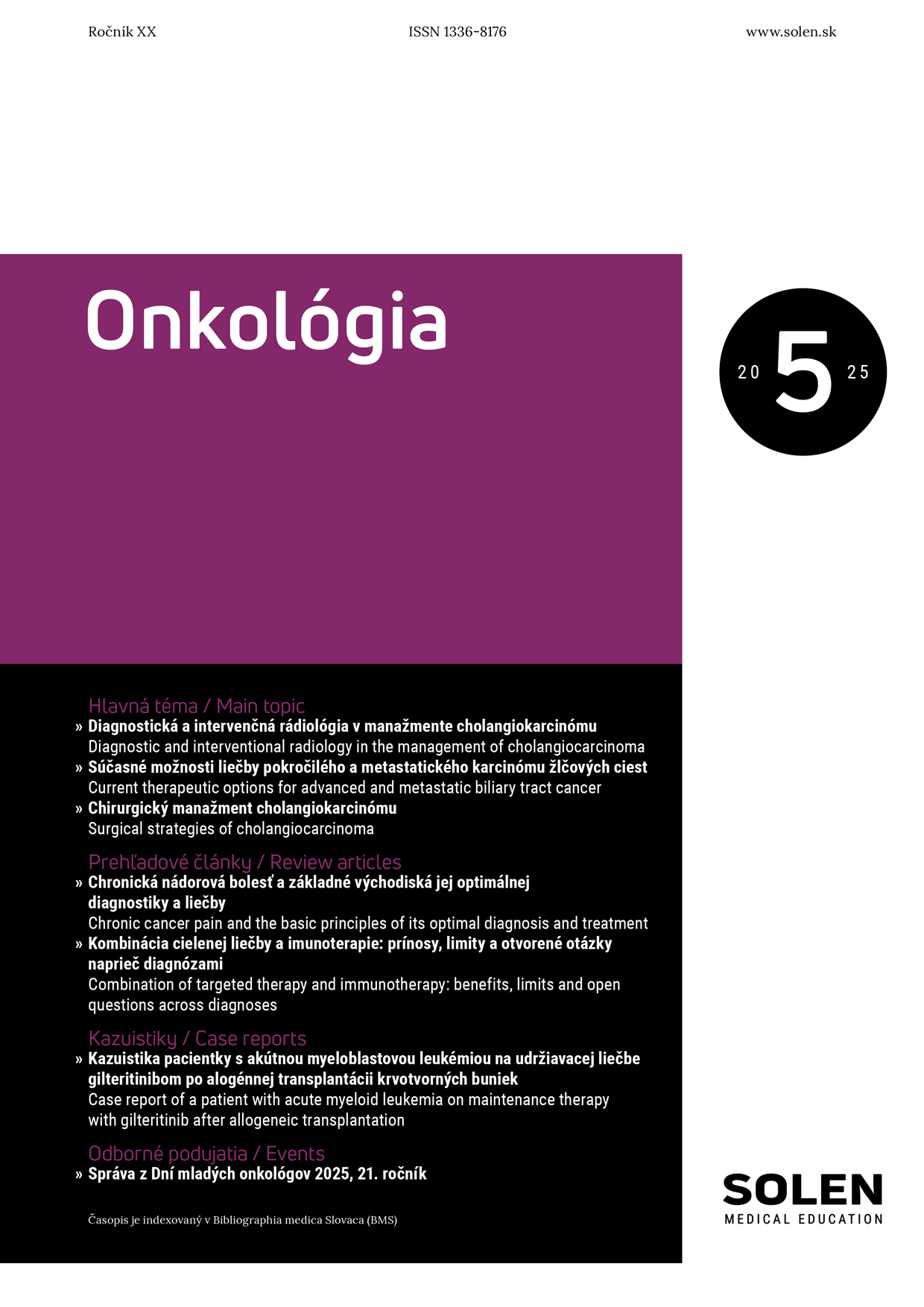Onkológia 4/2016
Súčasné možnosti liečby polyrezistentných nozokomiálnych infekcií
Narastajúca rezistencia mikróbov proti používaným antibiotikám vedie k problému v rozhodovaní o type antibiotika tak v empirickej, ako i cielenej liečbe pacientov, zvlášť onkologických a najmä hematoonkologických pacientov. Pozoruje sa návrat k starším antibiotikám, ktoré sú často jedinou liečebnou možnosťou – ide o fosfomycín, kolimycín/polymyxín B, tigecyklín, daptomycín. Neexistuje však dostatok informácií o používaní týchto antibiotík zvlášť u hematoonkologických pacientov, u ktorých je predpoklad liekových interakcií. Preto skupina expertov na ECIL-4 (4th European Conference on Infections in Leukemia) mítingu vytvorila pracovné odporúčania na používanie antibiotík proti multirezistentným patogénom.
Kľúčové slová: rezistencia, antibiotiká, G-pozitívne baktérie, G-negatívne baktérie, hematologický
Current possibilities of the treatment of multiresistant nosocomial infections
Growing antimicrobial resistance to used antibiotics leads to the problem in deciding about the type of antibiotic both in empiric and targeted treatment of patients, especially oncologic and haematologic patients. One can observe the renewed use of older antibiotics, which are often the only possibilities of treatment – fosfomycin, colistin/polymyxin B, tigecyclin, daptomycin. There is not enough information about use of these antibiotics especially in haematologic patients, where is the presumption of drug interactions. Therefor the Expert Group at the ECIL-4 meeting established the working guidelines for the use of antibiotics against multiresistant pathogenes.
Keywords: resistance, antibiotics, gram-positive bacteria, gram-negative bacteria, hematologic

















